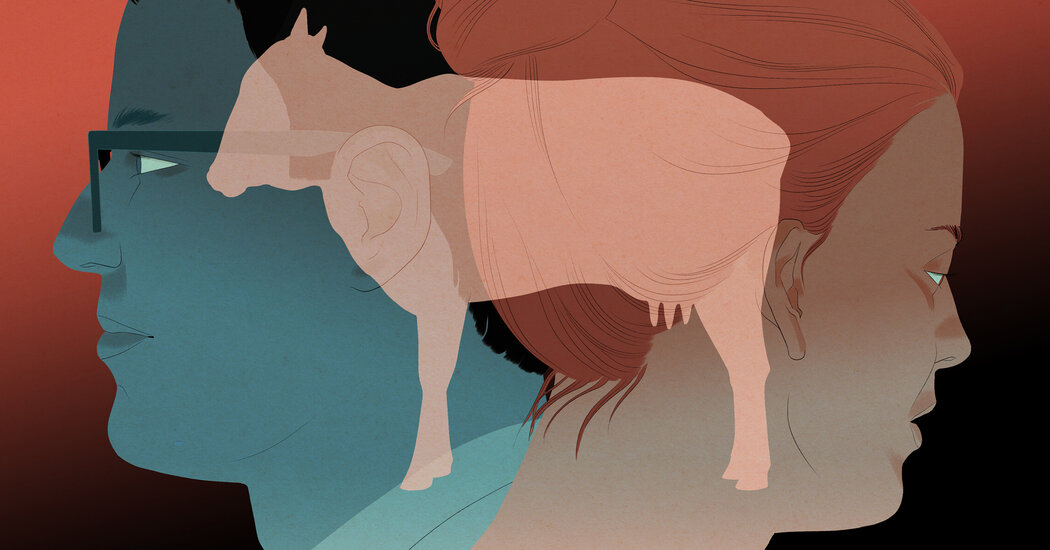CHOICE, by Neel Mukherjee
Neel Mukherjee’s “Choice” is a novel full of characters deciding how much truth to tell. As in “The Lives of Others,” the author’s 2014 Booker Prize-shortlisted novel, we are confronted with subtle, powerful narratives within narratives exploring the gap between wealth and poverty, myopia and activism, fact and fiction. But here these themes deepen into an exploration of free will. A line from V.S. Naipaul’s “In a Free State” comes to mind: “The only lies for which we are truly punished are those we tell ourselves.”
In the first of the novel’s three parts, we follow a South Asian man named Ayush. The lie he is telling himself is that he can control his career, his family, his future. As the editorial director at a London publishing house, he reports to a white woman “reputed to have a ‘nose for a winner’” — but the press is called Sewer, and Ayush can’t “shake off the feeling that he is their diversity box, ticked.”
At home his husband, Luke, worries about Ayush’s O.C.D. tendencies, but also his attempts to expose their two children to the repercussions of their choices. When they choose to eat meat, Ayush swaps out a bedtime story for a video of pigs being slaughtered. And when the kids seem as if they might still take their privilege for granted, he redirects 200,000 pounds from their education fund to “three different climate change charities.”
These choices may seem like the actions of a crackpot, but Mukherjee’s trick is to make them also read as the plausible acts of a man clinging to a social conscience. Late capitalism doesn’t seem to have helped Ayush’s mental health, but when he acquires a brilliant manuscript, he is unburdened. Other people’s stories offer a space within which he can stop struggling to control his own narrative.
One such manuscript forms the second section of “Choice.” We have already experienced Ayush’s excitement about a short story by a publicity-shy author who goes by the pseudonym “M.N. Opie” — a tale about a young academic named Emily who gets caught up in a car accident. Now, in an enactment of Ayush’s own thrill, we get to read that very story.
Emily’s memory of the disastrous cab ride is fuzzy. But she is almost sure her driver, a struggling immigrant from Eritrea, committed a hit and run. “The familiar reasserted itself before she could react,” Mukherjee writes. “She was out of the car, standing in the cold rain, shaking, watching the car flee.”
Should Emily call the police immediately — or wait and see if her memory chooses to settle upon a more definitive version of the truth? “It was not even a decision, not a withholding, but a momentary inertia that ripened, without any intention on her part, into something weightier.”
Mukherjee is brilliant at tracing the ways a choice deferred becomes a fate sealed. But the book’s tripartite structure is even better at showing how we graze one another’s lives with our decisions, some of which may be catastrophic for our conscience but beneficial for our art.
Much like Ayush, Emily has been stuck in a job that has turned out to be “hostile ground for the flourishing of a love of literature.” Now, feeling complicit in the killing of another human being, she finally has something meaningful to write about. A death on the road has given her life on the page.
The final section of Mukherjee’s novel picks up the thread of another story dangled at the start — an anecdote Ayush is told over drinks about a cow being given to a poor family in West Bengal. For the family, this “grand, majestic gift” is just as transformative as anticipated — but in unexpected ways. The animal needs fresh water every day, and clean, dry straw. Not easy to find during monsoon season.
What happens to our choices when reality prefers not to comply? The answers, it turns out, are tragicomic and alarming. The “milk begins to spoil with increasing frequency.” The animal gets pregnant and requires the family, weak with hunger, to “massage her behind.” When the humans finally get to fill their bellies with her milk, “they get flatulence shortly afterwards and then the runs a bit later.”
A lesser writer would offer only pathos. Mukherjee is alive to all that — but also to the rich, cruel comedy of being saddled with an asset you can’t digest, a gift that costs you everything, a choice you can’t unmake.
This pattern of well-intentioned error bonds the three sections and makes for a strangely uplifting, exquisitely droll heartbreaker of a book. To be in the company of his cool, calm, all-noticing prose is to experience something like the helpless wonder his characters experience when they concede that the cursed cow now controls their lives. The milk of human kindness can be found — but we may not have the power to stop it souring.
CHOICE | By Neel Mukherjee | Norton | 320 pp. | $28.99.


